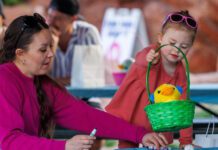 By Russ Cashin
By Russ Cashin
These last few months I’ve heard the disheartened cries of family, friends, and acquaintances over the apparent direction of our society in these United States. I completely understand the feelings and fears expressed around the rising public expressions of racism, bigotry, prejudice, and all related forms of discrimination that have infected American culture, especially in the policies and programs being voted upon and supported by our current government. It makes me wonder if we have forgotten all compassion and the beauty of diversity. Was my earlier belief in societal progress and equality among folks of different ethnicities and cultures all just a dream?
Yet even with the increased stress experienced by many people these days, I believe that we are in a time of great awakening. I have learned through my own intense personal experiences that shifts in human consciousness are usually preceded by difficult times. It will likely require great determination and persistence on our part now to advance the values of kindness and equanimity among our fellow human beings and to bring back into our purview the beauty and sacredness of our home we call Earth. One powerful tool that has helped me to maintain the optimism and inner peace required for this new awakening of humanity is to consciously recognize and embrace the truth that we are really not as different as we perceive and that it is the variety and diversity of life that makes the experience of being alive so exciting and fulfilling.
I want to share a recent experience with you to demonstrate palpable evidence of this awakening of humanity right here in St. George. As a member of the St. George Interfaith Council, I participated in The National Day of Prayer event that was held in the Gardner Center of Dixie State University May 4. The key message that was conveyed that morning by a prominent member of the LDS church was that while we as individuals may often be of a “different mind,” we are still of the same “heart” in that we all share many of the same hopes, desires, and dreams. This truth was further portrayed by the Interfaith Choir, which sang two musical numbers that beautifully and poignantly conveyed this message of peace and unity, one sung in English and the other in Hebrew.
Among the billions of people who currently inhabit our planet are those who speak many different languages, engage in a variety of cultural practices, and embrace many different belief systems. So how are we to get along, find peace, and realize the unity that exists all around us as well as within us?
The clue is in that statement regarding different minds and similar hearts. One of my more noteworthy teachers, Don Miguel Ruiz, speaks of this in his “Four Agreements” series of books. The problem, as he states it, is that we operate from our “thinking,” and yet it’s the thinking that is the problem. We “think” we know what is true, but our “truth” is founded on our beliefs, which are based upon what we were taught as children and choose to continue to embrace as adults. Once we have a “belief,” this “knowledge” then becomes our truth, but that doesn’t necessarily mean it’s true. As identified by Abraham-Hicks, “A belief is just a thought I keep thinking.”
A prime example of this shifting of beliefs that were previously thought to be true is the idea in early Christian theology that the universe, including the sun, revolved around the Earth. When Copernicus wrote that the Earth might actually orbit the sun, this provoked controversy among the church leaders of his day. Now that same church has participated in many scientific discoveries and even has its own astronomers.
Over the past 20 years, I have discovered that it is vitally important to continually examine our own personal truths in order to evolve and grow, which is the one constant truth in life — everything changes. While it may not feel easy or comfortable, one very helpful and meaningful way to do this is to make the concerted effort to get to know others from different cultures and belief systems and then listen to their stories. While what we hear may not immediately resonate with our own perspectives, such explorations often help to refine our own points of view; otherwise, how are we to expand our own thinking if we choose to only associate with those who agree with us?
When I left the belief system of my family and childhood, an essential part of my spiritual growth was to question everything I had been taught as well as question what I was learning through my new teachers. Truly questioning one’s own beliefs may be quite difficult for most, but it is a key factor in being able to let go of what we believe to be true yet probably isn’t true at all. This process of critical examination coupled with openness to others and to different ideas will lead us to new truths and to a deeper connection with all of life. When this process is combined with leading from the heart through the values of caring, compassion, and kindness, we are brought to an experience of greater peace within ourselves and the disappearance of conflict with others and our world.
What appear to be the troubled times that we are now experiencing as a nation and as a world is actually an opportunity for us to grow and evolve to the next level of human awareness. We can create inner and outer peace through the letting go of those beliefs that separate us from others and from our world. Self-examination, growth, openness, compassion, and the courage to accept and even embrace different perspectives by reaching out beyond our comfort zones offer us the opportunity to create a new world based on oneness, harmony, and peace. Let us take this opportunity to truly awaken and expand our consciousness during these seemingly uneasy times and create a world that works for all of life.



